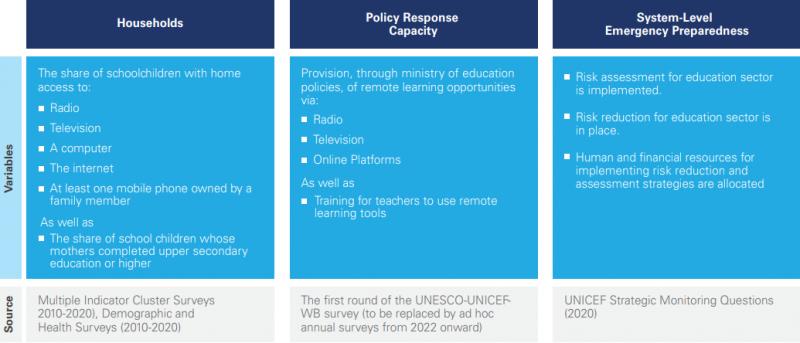The United Nations Children’s Fund (UNICEF) conducted a study across 67 countries to assess their preparedness for e-learning in the event of emergencies like the COVID-19 pandemic. UNICEF’s study used three data sources to rank countries on a scale of one to five stars for pre-primary to upper secondary level and they are:
- Household Level Factors: the availability of technological assets neeeded for remote learning like radio, television, mobile phones, computers and access to internet.
- Policy Response Capacity: the number of policies adopted to support e-learning and teachers during the pandemic.
- Emergency preparedeness: the level to which a country’s education sector implements risk assessment, has risk reduction strategies in place, and allocates human and financial resources for these activities.

Zimbabwe was bang average with a three-star rating which according to the report is defined as signifying that “the country’s remote learning systems can be regarded as relatively resilient, although serious concerns still remain about the potential for learning loss and the extent to which learning can continue in case of disrupted in-person instruction“. We were joined in the middle of the pack by Bangladesh, Bhutan, Burkina Faso, Guinea, Kyrgyzstan, Myanmar, Saint Lucia, Senegal and Sierra Leone.
The ranking is a little surprising judging by the fact that internet access progressively got more expensive as we went from lockdown to lockdown. Adding to that, Zimbabwe’s economy is largely informal and with the lockdowns depressing movement and business, the already inconsistent incomes were strained to extreme levels resulting in internet services which were the gateway to e-learning going beyond the reach of many.
On the other hand, the government did implement some useful policies like radio and TV lessons. Radio, in particular, was very pivotal because it has the most reach because according to ZimStat and POTRAZ’s Access to ICT study 62.7% of homes in the country have a radio.
In saying all of that, the process was not perfect by any stretch of the imagination because most of it was on the fly and there was no time to refine it, implementation was the more important hurdle to overcome. Moreover, we saw and heard of many startups and institutions that went used WhatsApp as an e-learning platform.
What remains to be seen now is how the government and businesses in the e-learning space use the lessons learned from the pandemic to reduce the shock to the education system if we are to experience something similar or greater than what we went through in 2020.
You can read the full report with the link here.
